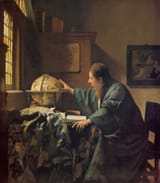Search Results
7/22/2025, 6:56:52 PM
>>149503601
NTA, but counterargument - every new technology involves people going through this sort of learning curve. There are always going to be things a new tool or tech isn't suited to doing, and things that it's very good at, and there are always going to be things that people experienced with previous tools and methods will be reluctant to try. The only way that we ever figure out what a tool is good for and what it's not good for is to try things out. Learning what skills can be delegated to new technology (and, more fundamentally, what skills should) is the most difficult part of any adaptation.
I'm coming at AI from a perspective of someone in the sciences, and I was extremely reluctant to apply AI to anything in my own teaching or research work. But eventually I started experimenting and started learning what things I could and should or can't and shouldn't use it for and it significantly improved my overall workflow.
ex. Is AI good for programming a complicated simulation or instrument interface from scratch? No. Is it good for quickly identifying and formatting standard algorithms to do specific things I've outlined? Yes. Is it good at tracking down modelling and logical errors? No. Is it good at tracking down syntax errors? Yes. These are tedious things that require little creative thought or problem-solving skills, but they're things that typically eat up an enormous amount of time and effort when programming.
I'm not saying this to be a one-to-one parallel with art, but I have to imagine that there are parts of the workflow for art and/or animation that are tedious, monotonous, and/or require very little new creative input on the part of the artist, but are still necessary shit that has to get done. These are the sorts of things I want to see people doing more of with AI. Less "AI, draw a picture of a guy" and more "AI, take this sketch I've drawn of a guy and do the inking for it using these other finished works of mine as examples"
NTA, but counterargument - every new technology involves people going through this sort of learning curve. There are always going to be things a new tool or tech isn't suited to doing, and things that it's very good at, and there are always going to be things that people experienced with previous tools and methods will be reluctant to try. The only way that we ever figure out what a tool is good for and what it's not good for is to try things out. Learning what skills can be delegated to new technology (and, more fundamentally, what skills should) is the most difficult part of any adaptation.
I'm coming at AI from a perspective of someone in the sciences, and I was extremely reluctant to apply AI to anything in my own teaching or research work. But eventually I started experimenting and started learning what things I could and should or can't and shouldn't use it for and it significantly improved my overall workflow.
ex. Is AI good for programming a complicated simulation or instrument interface from scratch? No. Is it good for quickly identifying and formatting standard algorithms to do specific things I've outlined? Yes. Is it good at tracking down modelling and logical errors? No. Is it good at tracking down syntax errors? Yes. These are tedious things that require little creative thought or problem-solving skills, but they're things that typically eat up an enormous amount of time and effort when programming.
I'm not saying this to be a one-to-one parallel with art, but I have to imagine that there are parts of the workflow for art and/or animation that are tedious, monotonous, and/or require very little new creative input on the part of the artist, but are still necessary shit that has to get done. These are the sorts of things I want to see people doing more of with AI. Less "AI, draw a picture of a guy" and more "AI, take this sketch I've drawn of a guy and do the inking for it using these other finished works of mine as examples"
Page 1
